Strongman Diet: 5 Key Aspects & Menu Example
Author:
Unlock your full potential by engaging with our experts and community! Have questions about your fitness journey or looking for expert advice on weightlifting techniques? Don’t hesitate — leave a comment below and Sergiy Osipchyk will provide a personalized answer and insights to help you reach your goals.
Torokhtiy is reader-supported. Some links are affiliate links, and we may earn a commission at no extra cost to you. See our disclosure page for details.
The diet program is vital for Strongman’s vigorous workouts. Consuming proper macronutrients, e.g., carbs and protein will provide the body with the needed nutrients to support muscle growth and recovery. Get useful tips on how to maintain good form via following the right nutritional regime.
A strongman diet includes eating high-quality meals out of sufficient amounts of sugar and salt, junk and processed food. It should be protein-, macro- and micronutrient-rich, with the following ratio: 45% carbs, 30% protein, and 25% fat. Only a balanced diet, proper timing, and nutritious products will lead to progress.
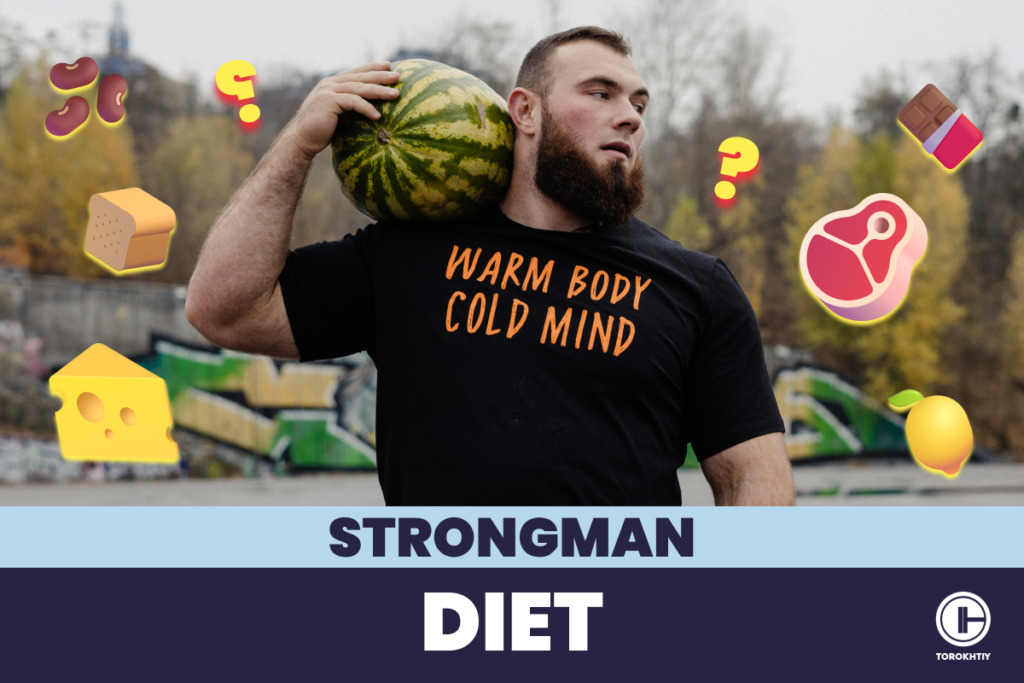
Strongman Diet: Overview
Strongman is a competitive sport where both static and cardio-vascular strength are essential. Strongmen have to be not only strong while performing movements like the squat and deadlift, they have to be able to carry heavy awkward items over a specified distance showcasing their peak physical performance.
Deadlifting 1000 lbs or pulling a truck is all about strongman vigorous workout. So, it’s no surprise that a nutrition regime for a strongman should also be extreme and well-considered.
Hence, a proper nutrition program is vital for a strongman’s strength and sufficient muscle size. The key to healthy quality muscle and weight gain is to eat big and consistently throughout the day following a structured strongman meal plan.
Basic Principles of Strongman Nutrition
Strongman training aims to pack on muscle mass and get as big as possible. With a properly built diet regime, a strongman gives himself the energy to power them through any training. They should fuel their bodies with the correct nutrients for maximum performance.
Meaning consuming proper meals throughout contest preparation and training as well as ensuring their bodies adapt and respond optimally to training demands and intensity.
5 Key Aspects of the Strongman Diet
1. Protein Amount
Protein is important in building and repairing muscle tissue. Strongmen should consume 1.5-2 grams per pound of their body weight. This amount is needed for amino acids to be absorbed and used by the body during competition preparation.
The protein intake refers to adequate leucine consumption, which facilitates mTOR (protein that controls cell functioning) stimulation and protein synthesis.
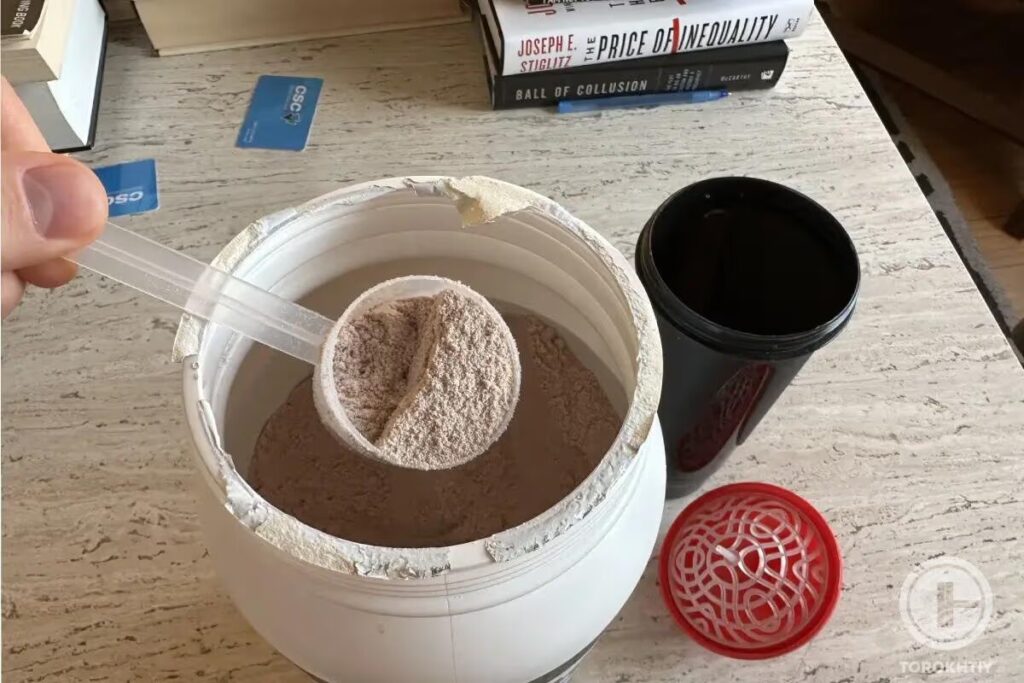
2. Sufficient Calorie Intake
One of the critical factors in a strongman diet regime is caloric intake. Since a strongman burns a significant number of calories during training, meaning they need to consume a large number of calories to fuel their bodies.
According to the American College of Sports Medicine, strength athletes require around 40-50 calories per kilogram of body weight per day. For a 220-pound athlete, this is around 3,600-4,500 calories per day.
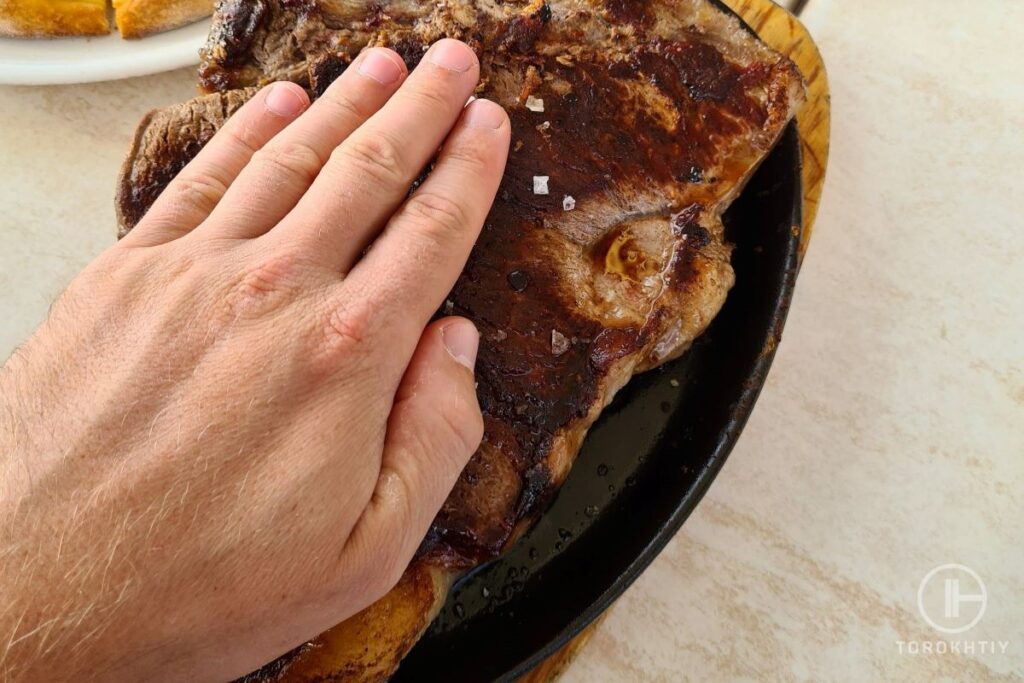
3. Frequency of Meal Consumption
Six or seven feeds all in large quantities are the proper norm for strongmen, including plenty of high protein food, e.g., lean meat, chicken, fish, eggs, and milk; fibrous low glycaemic carbs like cereals, bread, pasta, rice, and potatoes; fruit and vegetables (also nuts and pulses); as well as sources of essential fats.
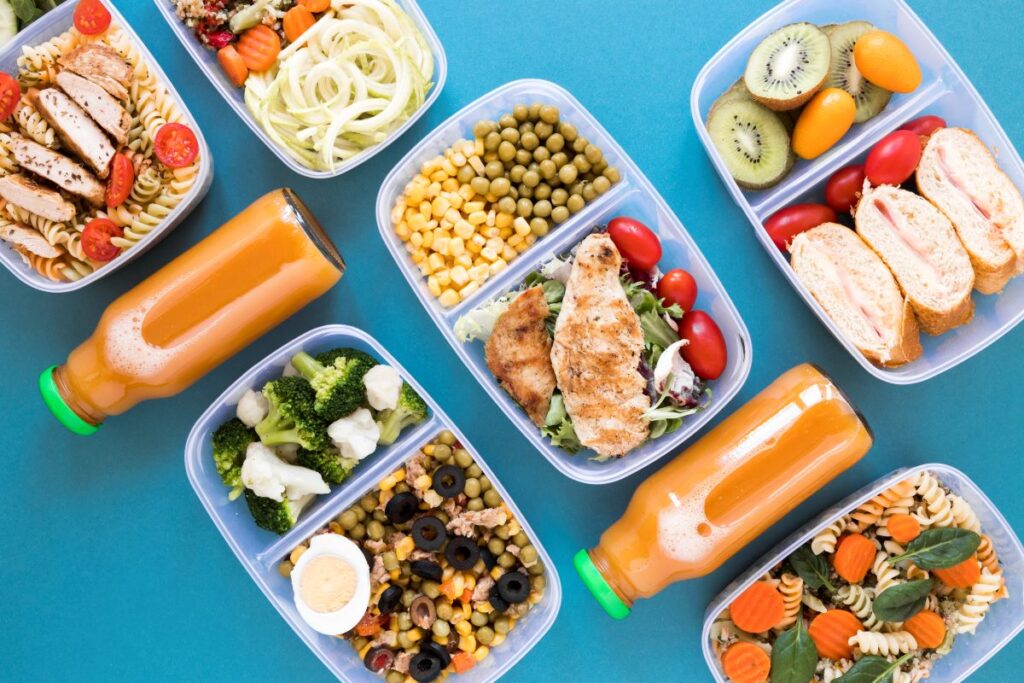
4. Adding Micronutrients and Supplements
Micronutrients are the vitamins and minerals needed by the body to stay healthy in the long run. When you’re strength training, you should increase the intake of Calcium, Phosphorus, Iron, Zinc, Vitamins C, D, E, and vitamin B complex.
Vitamins and minerals are best absorbed with the meal. Studies proved that taking vitamin C and E supplements don’t have such a noticeable effect on muscle development. You don’t need to take extra supplements with a well-balanced diet.
Weight gain supplements, as well as protein, can be useful for gaining size and strength, but it’s not a substitute for good wholesome food.
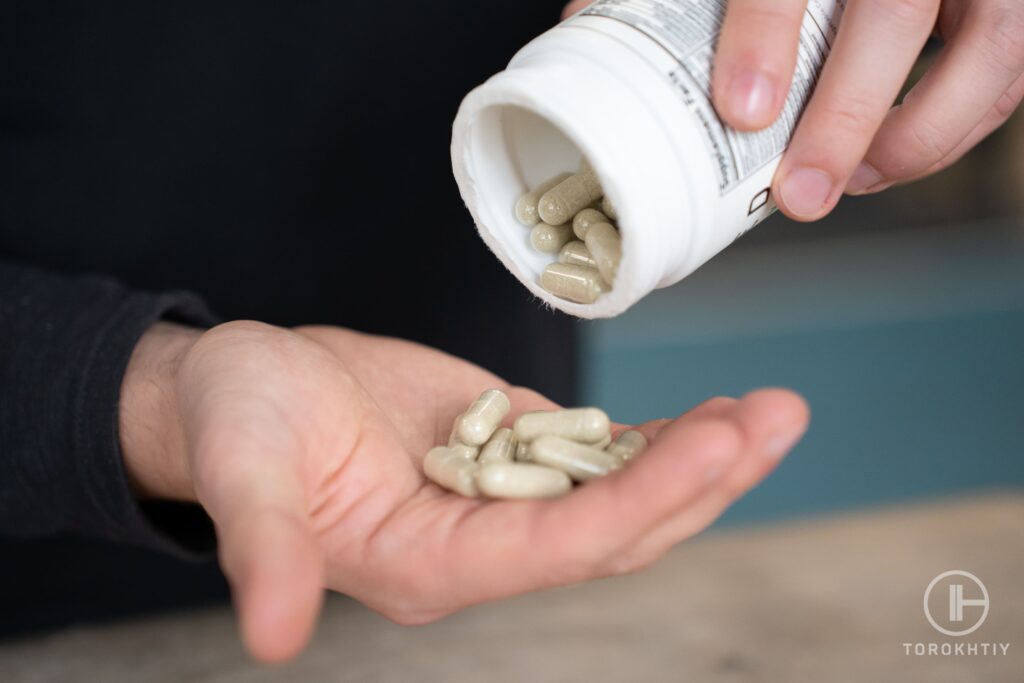
5. The Role of Carbohydrates and Fats in Recovery and Training Activity
Strength athletes should focus on carbohydrates during contest preparation to help increase glycogen stores in the muscles and improve their performance in competitions that last over 90 minutes.
This fuel helps to provide glucose to the muscles, which will be used as an energy source when glycogen levels are low. Also, carbs also provide creatine phosphate, which helps the body convert fat for energy.
Carbs are the primary source of energy during intense exercises, namely the stored glycogen. The American Dietetic Association recommends strength athletes consume 6-10 grams of carbs per kilogram of body weight per day.
Fat is essential for energy production and hormone regulation. It also helps to absorb vitamins and minerals. The American College of Sports Medicine recommends for strength athletes to consume 20-35% of their daily calories from fat.
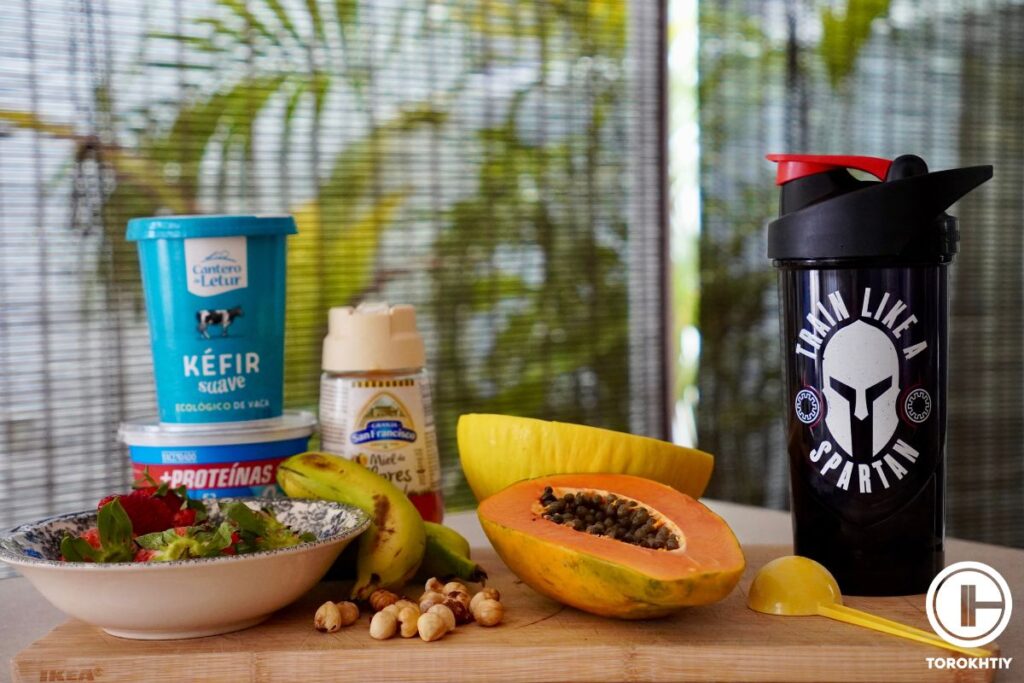
Strongman Menu Sample for the Day
Let’s observe a sample of a strongman diet plan for one day of around 130 kg of body weight, which will help to boost strength and promote overall performance.
| Meal | Timing | Products | Amount/ Calories | Notes |
|---|---|---|---|---|
| Breakfast | 8 a.m. | 6-8 eggstoast with peanut butterprotein shake (30 g of whey protein)granola bartea/coffee with skimmed milk | 1180 calories68 g of protein74 g of carbs | Choose something convenient, energizing, and that won’t bother your stomach. Opt for something that gives you the fuel. Avoid eating lots of protein, fiber, or fat, as these are all nutrients that can slow down digestion. |
| Mid-morning | 9-10 a.m. | sandwiches: 4 slices of granary bread with tuna/ chicken/ ham;fresh salad;mixed nuts, fruits;glass of water | 1053 calories115 g protein92 g carbs25 g fat | Take a bite just about an hour later after breakfast. |
| Lunch | 12 p.m. | meat, e.g., organic beef, pasta with red sauce or 2 chicken breasts/ 200 g of canned tuna100 g of Basmati rice/ wholewheat pastaa tablespoon of sunflower seeds mixed saladlow-fat yogurt | 2,000 calories190 g of carbs170 g of protein82 g fat | For the main meal, it’s crucial to consume a sufficient amount of calories, carbs, and protein for the next training session.The meal should be easy to digest. |
| Mid-afternoon | 3 p.m. | 4-6 oatcakes250 g cottage cheese/ quarka mix of nutsa large banana green tea | 1002 calories 112 g protein89 g carbs22 g fat | Take these balanced and satisfying snacks to power through the day until evening. |
| 30-min before workout | 5 p.m. | 4 squares of hand-made oats & dried fruit bars a tablespoon of sunflower seedswater +20 g of whey protein and 30 g of dextrose in water | 200-300 calories | Carbs before training can help you perform better. They may allow you to work out for a longer time and at a higher intensity. |
| During workout | 5:30 p.m. | sip 20 g of whey protein | ~100 calories | Taking meals during training will help maintain blood glucose concentration, maximize performance, and facilitate recovery time. |
| After workout | 6:30-7 p.m. | 40 g scoop whey protein + 30 g dextrose + 30 g maltodextrin in water | ~200 calories | Post-workout meal is the most important meal of the day. You need to give your body quick energy to launch the recovery process. Meaning, you should include more quick-digesting carbs and lean protein. |
| Evening | 8 p.m. | 250 g of lean red meat or 250 g chicken/ turkey/ 300 g of white fish carbs, e.g. 100 g of basmati rice/ 100 g wholewheat pasta/ 6-8 small boiled new potatoes a large serving of vegetables/ salad low-fat yogurt | ~700 calories | The last full meal consumption should be also nutritious, consisting of a sufficient amount of proteins, carbs, and fats. |
| Mid-evening | 9 p.m. | a large bowl of high-fibre cereal (i.e., bran flakes, muesli, or porridge) 200 ml of skimmed milk with 1 tablespoon of sugar/ 200 ml of fresh fruit juice | 200-250 calories | This meal can provide a good source of calories and additional protein, assisting in increasing fluid intake. |
| Late snack | 10 p.m. | Protein smoothie | 140-200 calories | Have a small snack 30-40 minutes before going to sleep. |
The Importance of the Timing of Nutrition in Relation to Training
A strongman should choose proper nutrients for pre-, during-, and post-workout periods as it can significantly influence their final result. The timing is crucial in strongman training: taking the right foods at the right time can fuel the whole body, enhance recovery, and improve your overall health.
| Type | Timing | Nutrients to consume | Benefit |
|---|---|---|---|
| Pre-workout | 2-3 hours after large meals/ or 1-2 hours after small meals/30-60 minutes after snacks | boiled eggswhole grain cerealtoast with turkey slicescottage cheese with fruitsgreek yoghurt with dried fruitsprotein/ granola barbroccolismoothie | It’s a fuel for effective training;Increase performance: while exercising your body converts glycogen into glucose for better muscle contraction. With the proper pre-training nutrition, you’ll reduce muscle glycogen depletion. Preventing fatigue;Reducing protein breakdown |
| During workout | (depends on the duration of the training) | intra-workout drinks (amino acids, protein, electrolytes, carbohydrates)energy gels/ bars | Keep your body hydrated with small, frequent sips of water |
| Post-workout | refuel the body within 15-30 minutes after training | meat, eggs, milk, peanut butter, omeletbananas, rice, porridge, potatonut butter, avocado, oil, hummus | for post-workout recovery by refueling your body with glycogen, providing the body with the energy needed to adapt to and recover from the workout.maximizing muscle repair by focusing on protein and amino acids. |
Pre-workout nutrition should include meals rich in carbs that can help to maximize their performance. Also, carbs can boost stamina and delay fatigue.
Dietary supplements like multi-ingredient pre-workout supplements garnered interest from athletes as they contain a blend of ingredients such as caffeine, BCAAs, nitrates, creatine, and other ingredients that can improve exercise performance.
During-workout nutrition: if you plan to exercise for a prolonged time, it’s recommended to consume carbs to maintain blood sugar levels and delay fatigue while training. Consuming protein during workout may prevent muscle breakdown.
Consuming a post-workout meal rich in carbs and protein will promote recovery and muscle growth.
Follow us!
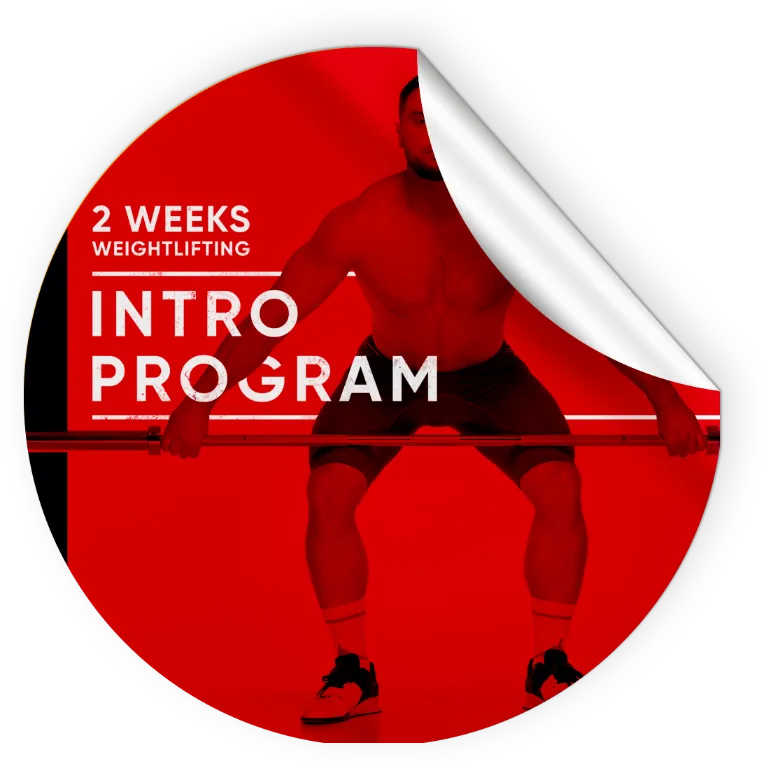
Free!
Get a 2-week Weightlifting Program as a bonus for the subscription to kickstart your training plan!

Free!
Diet Adaptation for Amateurs: Key Advice on How to Become More Productive
If you aim to become a strongman or want to train according to the strongman training regime, you need to get used to the idea that food is a major fuel for training and recovery. And it works best when you follow clean eating.
Here are several tips for a strongman beginner to follow to maintain a good body form and excellent performance:
1. Eat High-Quality Food and Little Sugar or Junk Food
Arrange a strongman diet plan for beginners: opt for a meal, which is rich in essential nutrients such as vitamins, minerals, proteins, and healthy fats. Instead, avoid processed food such as sweetened breakfast cereals, packaged baked goods, and sweetened beverages that are designed to be hyper-palatable.

2. Consume Enough Protein
Protein is a key building material for muscles. It provides an athlete’s body with the needed amino acids to rebuild and maintain quality muscle mass. Thus, a high-quality protein source is a must-have, i.e., meat as the main source in addition to eggs, milk, and whey.
By the way, meat and eggs have a high-creatine level. Creatine is a thing your muscles use to regenerate ATP for explosive power.
3. Stay Hydrated
Drink enough water when exercising, it’ll help you to maintain concentration and performance, increase endurance and prevent excessive elevations in heart rate and body temperature while sweating. Try some sports drinks with electrolytes and carbs to refuel the body during exercise.
4. Make Healthy Snacks
A habit of having some snacks can significantly boost your performance during workout and speed up recovery. 30 to 60 minutes before training, you can eat a carbohydrate-rich snack low in protein, fiber, and fat.
Carbs will provide glucose to supply energy to muscles. While protein, fiber and fat can slow digestion. These nutrients also may cause unpleasant gastrointestinal side effects while working out.
Final Point
Put in the work to get better results. A proper strongman diet should meet sports goals and fuel an athlete’s body by pushing the limits. Aim for a balanced nutrition full of macro- and micronutrients sufficient for your needs.
Have questions about how to plan your meals and choose ingredients to meet your training goals? Share your thoughts below!
References:
- Pasiakos, S.; et al. “The effects of protein supplements on muscle mass, strength, and aerobic and anaerobic power in healthy adults: a systematic review”, Sports Medicine no. 45(1), (2015), p. 111-31.
- Kreider, R. “Effects of creatine supplementation on performance and training adaptations”, Molecular and cellular biochemistry, no. 244(1-2), (2003), p. 89-94.
- Brad Jon Schoenfeld, PhD, CSCS, FNSCA, , PhD, CSCS, FNSCA, Alan Albert Aragon, MSc, MSc. “Is There a Postworkout Anabolic Window of Opportunity for Nutrient Consumption? Clearing up Controversies”, Journal of Orthopaedic & Sports Physical Therapy, Volume 48, Issue 12 (2018), p. 911-914.
- Patrick S. Harty, Hannah A. Zabriskie, Jacob L. Erickson. “Multi-ingredient pre-workout supplements, safety implications, and performance outcomes: a brief review”, Journal of the International Society of Sports Nutrition, no. 15: 41, (2018).
- John W. Carbone, Stefan M. Pasiakos, “Dietary Protein and Muscle Mass: Translating Science to Application and Health Benefit”, Nutrients, no. 11(5), (2019): 1136.
- Photos by Torokhtiy Media team; Photo by @freepik, Freepik.com.
Why Trust Us?
With over 20 years in Olympic weightlifting, strength training, nutrition coaching, and general fitness our team does its best to provide the audience with ultimate support and meet the needs and requirements of advanced athletes and professional lifters, as well as people who strive to open new opportunities and develop their physical capabilities with us.
By trusting the recommendations of our certified experts in coaching, nutrition, and sports training programming, as well as scientific consultants, and physiotherapists, we provide you with thorough, well-considered, and scientifically proven content. All the information given in the articles concerning workout programming, separate exercises, and athletic performance, in general, is based on verified data.
The product testing process is described in more detail here.
Author: Sergiy Osipchyk
Strongman Coach,
Former coach of Oleksiy Novikov and Pavlo Nakonechnyy
Strongman Experience: 10+ years
Sergiy has been involved in strength sports since he was 10 years old, and already started coaching when he was just 15 years old.
He helps clients of any age and experiences achieve results using an individual approach, daily process control, consultation and training knowledge and techniques, total experience is more than 20,000 individual training sessions.
Sergiy has trained a roster of renowned PRO strongman athletes including Oleksii Novikov, Pavlo Nakonechnyy and many other.



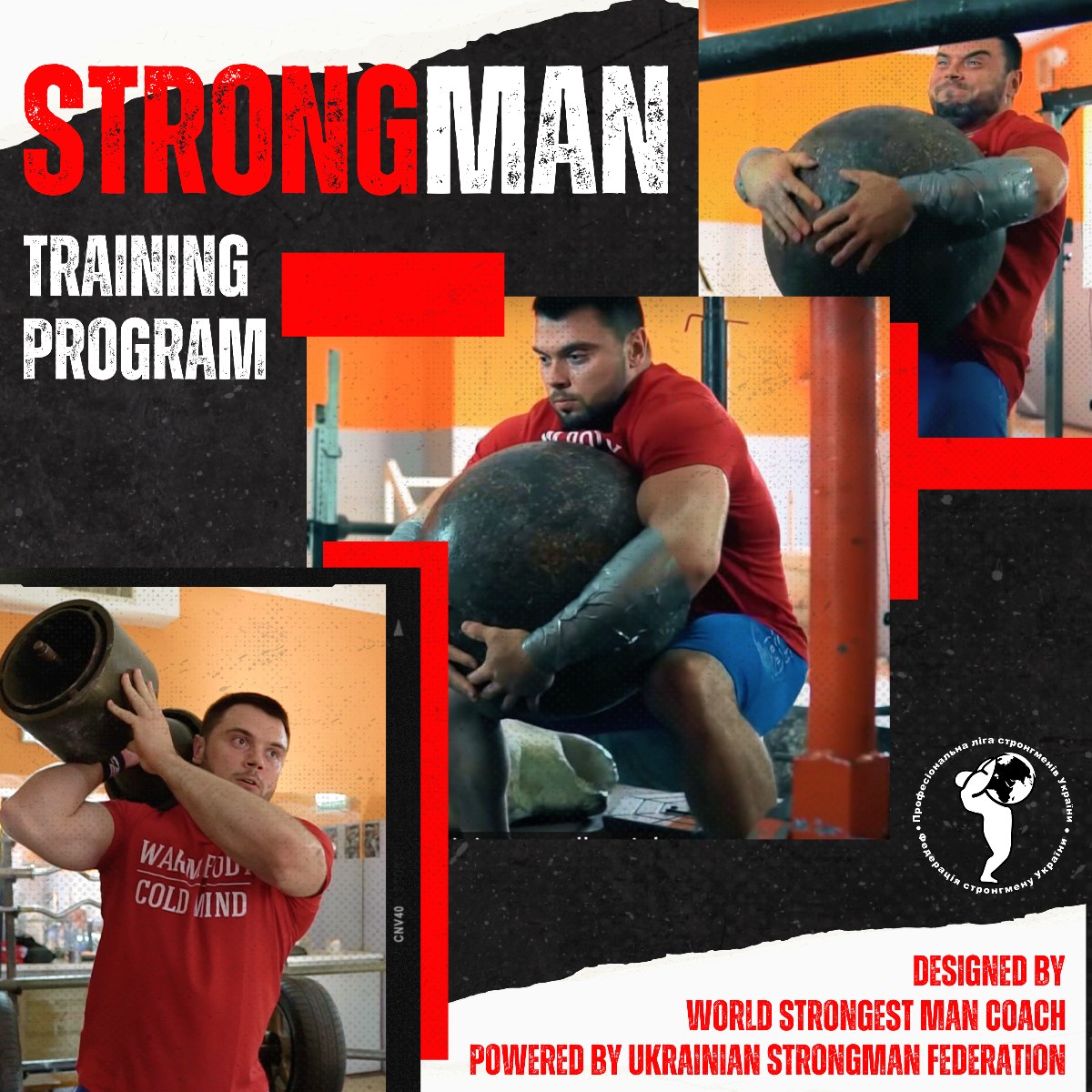
Still have questions after reading our article? Unlock your full potential by engaging with our experts and community! Don’t hesitate — leave a comment below and Sergiy Osipchyk will provide a personalized answer and insights to help you reach your goals.